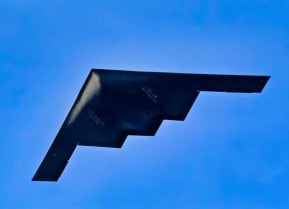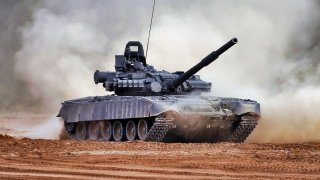What MAGA Republicans Don't Get About the Ukraine War
The war between Russia and Ukraine is not merely a regional conflict; it's a litmus test for the international order post-World War II, which has largely succeeded in preventing major conflicts through a balance of power and deterrents.
Summary: The situation in Ukraine is not merely a regional conflict; it's a litmus test for the international order post-World War II, which has largely succeeded in preventing major conflicts through a balance of power and deterrents.
MAGA Should Care: Ukraine's Battle and the Future of International Order: What's at Risk?
I get why MAGA Republicans don’t care about Ukrainians. Ukraine is far away; its problems are even further away; and there are tons of other things closer to home to worry about. And besides, most Ukrainians probably feel the same way about MAGA Republicans and the Midwest.
Sure, there are the moral issues. Russia is committing genocide, violating human rights, and destroying democracy—things that all Americans claim to care about. And Ukraine is fighting for its survival. But, hey, you can’t solve all the world’s problems, can you? Especially those that don’t directly affect you.
The problem with this line of reasoning is simple. Today, Ukrainians are doing all the dying. If they lose to Vladimir Putin, tomorrow Americans will do the dying. And the Americans who’ll do the dying won’t be the privileged sons and daughters of east or west coast liberals. They’ll be the underprivileged, underemployed, and embittered folks who support Donald Trump and want to make America great again. In all likelihood, they’ll succeed—but not without giving up their lives for the president who stumbled into a war with Putin’s Russia in the first place.
As the former Speaker of the House of Representatives Newt Gingrich recently put it, “A defeat for the West in Ukraine would send a catastrophic signal to Mr. Putin — and every aggressive dictator on the planet — that the system which has kept peace for nearly 80 years is collapsing. Overnight, predatory behavior would become the norm. Since a Russian victory would profoundly change history and lead to more global violence, we must help defeat Mr. Putin despite political challenges.”
Gingrich doesn’t speak of war, but it follows from his statement that, once the system that has kept the peace collapses, war will be the inevitable result. Nor does Gingrich say that the United States will become embroiled in war, but that conclusion also follows from his analysis. As his very first sentence states: “If Russian dictator Vladimir Putin’s attack on Ukraine becomes a victory for Russian aggression, it will have disastrous consequences for America and the world.”
What can be more disastrous than war? And what can be more disastrous for American than a war or wars waged by Americans? If it comes to that, the death and destruction will make the ongoing Russian aggression against Ukraine look like child’s play.
Gingrich is right to emphasize that Russia wouldn’t be the only country looking to engage America in a war: “Communist China’s general secretary and president, Xi Jinping, will recalculate the risk of invading Taiwan. Kim Jong-un will question whether the United States would really intervene if he attacked South Korea. North Korea has an estimated 30 nuclear weapons — likely many more by the end of the decade.”
How many Americans would be likely to die in major wars with Russia in, say, Poland or with China and North Korea, over Taiwan or South Korea? Tens of thousands? Hundreds of thousands? A million? We have no way of knowing, but it’s clear that the numbers would be extremely high. Putin has amply demonstrated that he’s more than willing to suffer staggering casualties in order to kill a few Ukrainians. Beijing and Pyongyang are likely to be even less restrained by concern for their citizens. And keep in mind that all three countries have nuclear weapons and that Putin’s and Kim’s attitudes to first use are at best cavalier.
Would the volunteer army suffice to fight the Russians, Chinese, and North Koreans or would a draft have to be reinstituted? According to a 2018 study, “the top five for recruitment in 2018 were California, Texas, Florida, Georgia, North Carolina, and New York.” Next in line were Illinois, Ohio, Pennsylvania, Virginia, and Arizona. Except for California and New York, none of these states is or was a Democratic stronghold. A draft would spread the pain more evenly, but, unless college deferments aren’t permitted, high school graduates will likely predominate in the pool of draftees and, thus, among battlefield casualties.
Naturally, Gingrich and the many other serious analysts, on both the left and the right, could be wrong about the Russian war and the consequences of a Ukrainian defeat. It’s possible that the accused war criminal Putin is really a pussycat eager for peace and rousing choruses of Kumbaya. It’s also possible that Russia will abandon its centuries of expansion and retreat into isolationism. Just as it’s possible that Beijing will abandon Taiwan and Pyongyang will demilitarize. But the odds of such happy developments seem slim at best. Would you bet your livelihood on any of these eventualities?
And yet, that’s exactly what Donald Trump and House Speaker Mike Johnson are doing. They’re betting the lives of tens of thousands of MAGA Americans on the Pollyannaish possibility that Putin, Xi, and Kim are really great guys or, as Trump just called Hungary’s tinpot authoritarian leader, Victor Orban, “fantastic” leaders. The alternative is obvious: arm the Ukrainians and let them stop Putin’s hordes.
About the Author: Dr. Alexander Motyl
Alexander Motyl is a professor of political science at Rutgers-Newark. A specialist on Ukraine, Russia, and the USSR, and on nationalism, revolutions, empires, and theory, he is the author of 10 books of nonfiction, including Pidsumky imperii (2009); Puti imperii (2004); Imperial Ends: The Decay, Collapse, and Revival of Empires (2001); Revolutions, Nations, Empires: Conceptual Limits and Theoretical Possibilities (1999); Dilemmas of Independence: Ukraine after Totalitarianism (1993); and The Turn to the Right: The Ideological Origins and Development of Ukrainian Nationalism, 1919–1929 (1980); the editor of 15 volumes, including The Encyclopedia of Nationalism (2000) and The Holodomor Reader (2012); and a contributor of dozens of articles to academic and policy journals, newspaper op-ed pages, and magazines. He also has a weekly blog, “Ukraine’s Orange Blues.”
Image Credit: Shutterstock.


